第37章 XII(4)
Money, luxury, fashion, pleasure: those were the four cornerstones of her existence. He had always known it--she herself had always acknowledged it, even in their last dreadful talk together; and once he had gloried in her frankness. How could he ever have imagined that, to have her fill of these things, she would not in time stoop lower than she had yet stooped? Perhaps in giving her up to Strefford he might be saving her. At any rate, the taste of the past was now so bitter to him that he was moved to thank whatever gods there were for pushing that mortuary paragraph under his eye ....
"Susy, dear [he wrote], the fates seem to have taken our future in hand, and spared us the trouble of unravelling it. If I have sometimes been selfish enough to forget the conditions on which you agreed to marry me, they have come back to me during these two days of solitude. You've given me the best a man can have, and nothing else will ever be worth much to me. But since I haven't the ability to provide you with what you want, I recognize that I've no right to stand in your way. We must owe no more Venetian palaces to underhand services. I see by the newspapers that Streff can now give you as many palaces as you want. Let him have the chance--I fancy he'll jump at it, and he's the best man in sight. I wish I were in his shoes.
"I'll write again in a day or two, when I've collected my wits, and can give you an address. NICK."
He added a line on the subject of their modest funds, put the letter into an envelope, and addressed it to Mrs. Nicholas Lansing. As he did so, he reflected that it was the first time he had ever written his wife's married name.
"Well--by God, no other woman shall have it after her," he vowed, as he groped in his pocketbook for a stamp.
He stood up with a stretch of weariness--the heat was stifling!
--and put the letter in his pocket.
"I'll post it myself, it's safer," he thought; "and then what in the name of goodness shall I do next, I wonder?" He jammed his hat down on his head and walked out into the sun-blaze.
As he was turning away from the square by the general Post Office, a white parasol waved from a passing cab, and Coral Hicks leaned forward with outstretched hand. "I knew I'd find you," she triumphed. "I've been driving up and down in this broiling sun for hours, shopping and watching for you at the same time."
He stared at her blankly, too bewildered even to wonder how she knew he was in Genoa; and she continued, with the kind of shy imperiousness that always made him feel, in her presence, like a member of an orchestra under a masterful baton; "Now please get right into this carriage, and don't keep me roasting here another minute." To the cabdriver she called out: Al porto."
Nick Lansing sank down beside her. As he did so he noticed a heap of bundles at her feet, and felt that he had simply added one more to the number. He supposed that she was taking her spoils to the Ibis, and that he would be carried up to the deck- house to be displayed with the others. Well, it would all help to pass the day--and by night he would have reached some kind of a decision about his future.
On the third day after Nick's departure the post brought to the Palazzo Vanderlyn three letters for Mrs. Lansing.
The first to arrive was a word from Strefford, scribbled in the train and posted at Turin. In it he briefly said that he had been called home by the dreadful accident of which Susy had probably read in the daily papers. He added that he would write again from England, and then--in a blotted postscript--: "I wanted uncommonly badly to see you for good-bye, but the hour was impossible. Regards to Nick. Do write me just a word to Altringham."
The other two letters, which came together in the afternoon, were both from Genoa. Susy scanned the addresses and fell upon the one in her husband's writing. Her hand trembled so much that for a moment she could not open the envelope. When she had done so, she devoured the letter in a flash, and then sat and brooded over the outspread page as it lay on her knee. It might mean so many things--she could read into it so many harrowing alternatives of indifference and despair, of irony and tenderness! Was he suffering tortures when he wrote it, or seeking only to inflict them upon her? Or did the words represent his actual feelings, no more and no less, and did he really intend her to understand that he considered it his duty to abide by the letter of their preposterous compact? He had left her in wrath and indignation, yet, as a closer scrutiny revealed, there was not a word of reproach in his brief lines.
Perhaps that was why, in the last issue, they seemed so cold to her .... She shivered and turned to the other envelope.
The large stilted characters, though half-familiar, called up no definite image. She opened the envelope and discovered a post- card of the Ibis, canvas spread, bounding over a rippled sea.
On the back was written:
"So awfully dear of you to lend us Mr. Lansing for a little cruise. You may count on our taking the best of care of him.
CORAL"